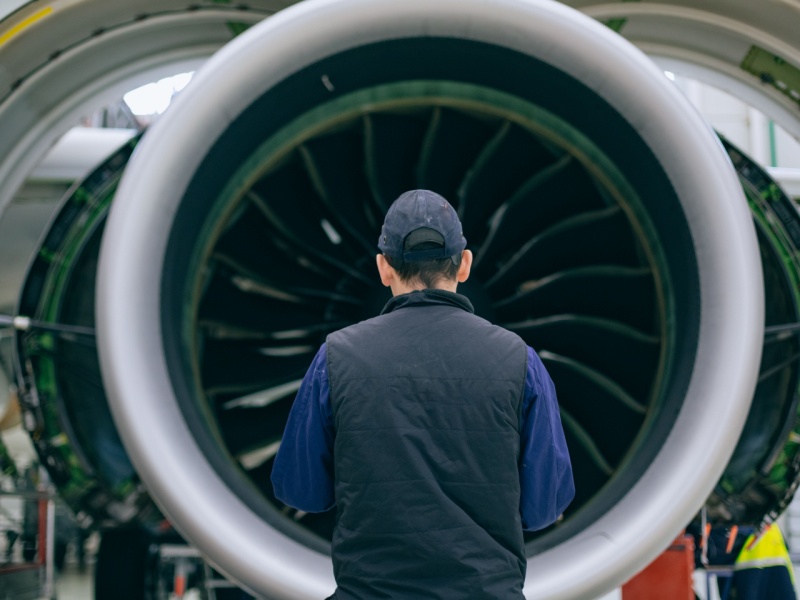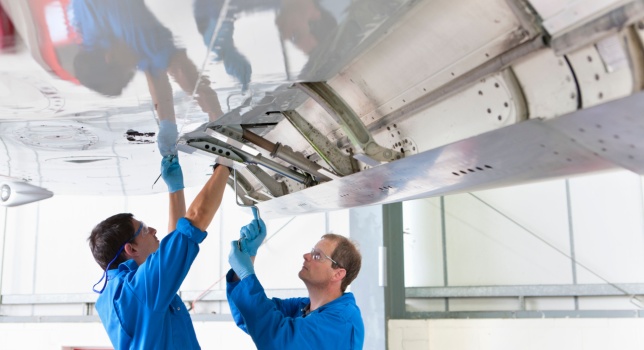In the dynamic and precision-demanding aerospace industry, quality management systems (QMS) play a crucial role in ensuring safety, reliability, and compliance. Two key standards that frequently come into play are AS9100 and AS9110. While both are part of the aerospace series of quality standards, they serve distinct purposes and sectors within the industry. Understanding their differences is vital for aerospace industry professionals seeking to optimize quality processes, enhance customer satisfaction, and maintain compliance.
Understanding AS9100
AS9100 is a widely recognized QMS standard for organizations involved in the aerospace sector, including aviation, space, and defense. It establishes a framework for quality management that aligns with ISO 9001 but includes additional aerospace industry-specific requirements. AS9100 is applicable to manufacturers, suppliers, and service providers engaged in the design, development, production, and distribution of aerospace products.
Key Focus Areas of AS9100:
- Product Safety: Ensuring that products meet stringent safety requirements throughout their lifecycle.
- Risk Management: Identifying and mitigating risks associated with aerospace products and processes.
- Configuration Management: Maintaining control over product design and related documentation to ensure consistency and traceability.
- Supply Chain Management: Monitoring and managing supplier performance to ensure quality standards are met.
What Sets AS9110 Apart?
AS9110, on the other hand, is specifically tailored for aerospace maintenance organizations. It builds upon the foundation of AS9100 but adds additional requirements that address the unique challenges faced by those responsible for the maintenance, repair, and overhaul (MRO) of aerospace products.
Unique Features of AS9110:
- Maintenance Processes: Detailed guidelines for planning, executing, and documenting maintenance activities to ensure airworthiness and compliance.
- Regulatory Compliance: Enhanced focus on meeting legal and regulatory requirements specific to maintenance organizations.
- Personnel Competence: Ensuring that maintenance personnel possess the necessary skills, qualifications, and training to perform their tasks effectively.
- Continual Improvement: Encouraging organizations to proactively identify opportunities for improving maintenance processes and practices.
Key Differences Between AS9100 vs AS9110
While both standards share a common foundation in quality management principles, the key differences lie in their intended applications and emphasis areas:
- Application - AS9110 vs AS9100:
- AS9100 is designed for organizations involved in aerospace product design, production, and distribution.
- AS9110 is specifically tailored for aerospace maintenance organizations responsible for repair and overhaul activities.
- Focus - AS9110 vs AS9100:
- AS9100 emphasizes product safety, risk management, and supply chain control.
- AS9110 focuses on maintenance processes, regulatory compliance, and personnel competence.
- Industry Scope - AS9110 vs AS9100:
- AS9100 covers a broad spectrum of aerospace industry segments, including manufacturing and services.
- AS9110 is narrowly focused on the MRO segment of the aerospace industry.
Why These Standards Matter
Understanding the differences between AS9100 vs AS9110 is integral to maintaining the highest quality standards in the aerospace industry. The two standards provide a structured approach to managing quality, mitigating risks, and ensuring compliance with regulatory requirements. Organizations that adhere to these standards benefit from improved operational efficiency, enhanced customer satisfaction, and a competitive edge in a highly demanding industry.
For aerospace industry professionals, understanding the distinctions between AS9100 vs AS9110 is crucial for selecting the appropriate standard that aligns with their specific business needs and operational goals. Whether you are involved in manufacturing or maintenance, these standards serve as valuable tools for driving excellence and achieving success in the aerospace sector.
If you're looking to implement or upgrade your QMS to align with AS9100 or AS9110, consider consulting with industry experts or obtaining certification through accredited bodies to ensure compliance and maximize the benefits of these standards.





